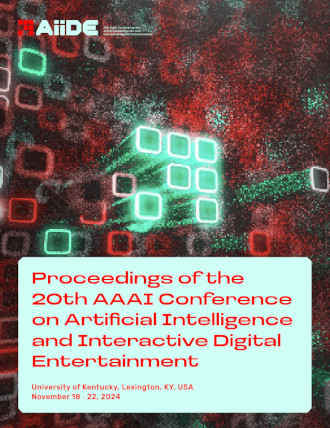Procedurally Puzzling: On Algorithmic Difficulty and Player Experience in QD-Generated Logic Grid Puzzles
DOI:
https://doi.org/10.1609/aiide.v20i1.31873Abstract
Determining if and how the difficulty of algorithmic puzzle solvers is related to the difficulty and enjoyment for human players is a challenging task. In this work, we explored this relationship using logic grid puzzles. We used an algorithmic solver to estimate the difficulty of the puzzles by capturing the number of ``solver loops'' through the algorithm. This characteristic was used to generate and evaluate a set of puzzles of varying algorithmic difficulty using constrained MAP-Elites. Then, we ran a user study to gather information on the player experience of these puzzles. We tested the relationship between solver loops and player experience on generated puzzles and found that the number of solver loops is statistically significantly correlated with subjective perception of difficulty and borderline statistically significantly correlated with puzzle correctness.Downloads
Published
2024-11-15
How to Cite
Shyne, F., Facey, K., & Cooper, S. (2024). Procedurally Puzzling: On Algorithmic Difficulty and Player Experience in QD-Generated Logic Grid Puzzles. Proceedings of the AAAI Conference on Artificial Intelligence and Interactive Digital Entertainment, 20(1), 127-137. https://doi.org/10.1609/aiide.v20i1.31873
Issue
Section
Full Technical

